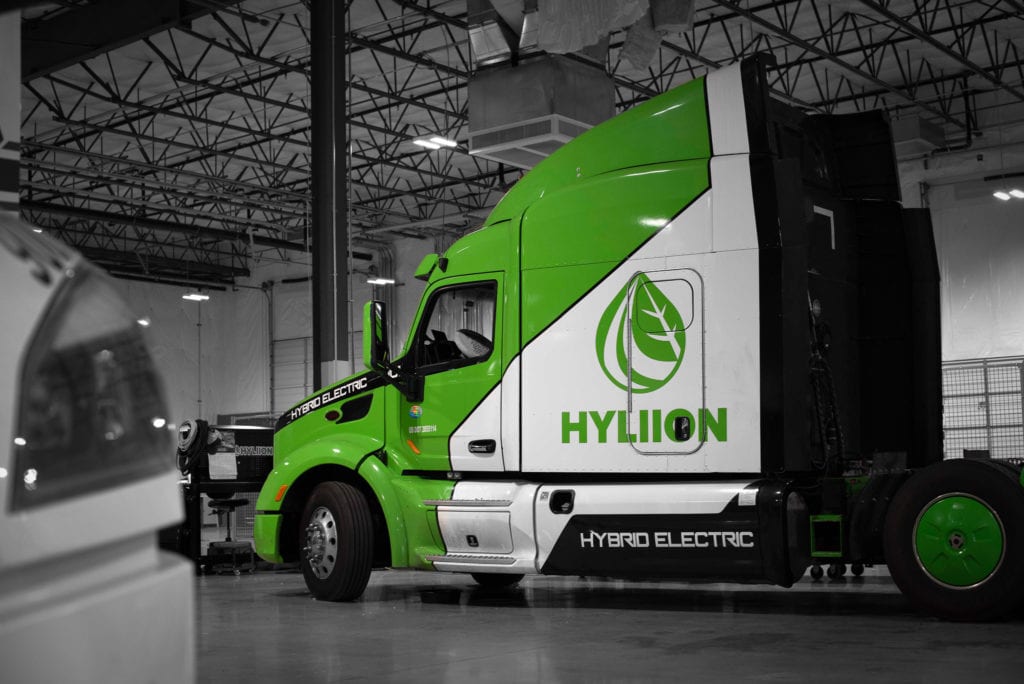It is no secret that Hyliion Holdings (NYSE:HYLN) stock has become a massive disappointment.

It fell dramatically leading up to its special purpose acquisition company (SPAC) merger back in late 2020, after rising in equally dramatic fashion after the initial announcement.
Prices rocketed from under $10 per share to a high nearing $55 rough a month prior to its Oct. 2, 2020 de-SPAC, but signs of market doubt were there as it dropped from the $50s into the $30 range before it became public.
It has only gone further downward since. So much so that investors can now pick up shares for a little less than $8 each. Forget the idea that it’s a steal, it isn’t. Signs of continued trouble are mounting.
Trouble Increasing for HYLN Stock
The broadest market signals indicate that although HYLN stock is as cheap as it’s ever been it is wise to avoid it.
The broad sentiment that I’m referring to is that of analyst coverage of Hyliion. Three months ago Hyliion carried a ‘hold’ rating from the five analysts with coverage of the equity. Then it had two “buys,” two “holds,” and a “sell” rating.
Fast forward three months and it now has zero “buy” ratings along with two “sell” ratings.
One of those changes came from a UBS Group (NYSE:UBS) analyst by the name of Steven Fisher. He downgraded his coverage of Hyliion on Oct. 11 from hold to sell, sending it sharply lower.
Hyliion shares briefly dipped below $7 but have since jumped back above that threshold. However, that doesn’t make it attractive.
Because the increasingly negative sentiment of Wall Street regarding Hyliion is logically sound.
Real Rift Emerges
Essentially, pundits are skeptical that Hyliion will be able to sell as many of its retrofit hybrid drivetrains that electrify fossil fuel class 8 trucks as it hopes.
There’s a wide rift between what Hyliion is projecting and consensus views from analysts who cover the company in depth.
Hyliion is projecting that it will sell $2 billion worth of retrofit EV drivetrains by 2024. Analyst consensus figures project a much lower $1.2 billion in sales by 2024.
That 40% difference led UBS’ Fisher to decrease his target stock price from $14 to $5 when he recently downgraded it.
Fisher’s rationale is that it will take time for potential customers to warm up to Hyliion’s offerings. On top of that, Fisher sees supply chain disruptions and labor shortages continuing to negatively affect the trucking industry moving forward.
Bleak Outlook
Hyliion is a pre-revenue growth company in an emerging sector. No one should be surprised then to understand that it posts continuing losses. Indeed, it posted a $23.244 million net loss in Q2.
But what investors are looking for are signs of improvement. There, signals are mixed. One the one hand, Hyliion gave guidance that full-year 2021 operating losses would come in between $130-$140 million, down from the $140 million anticipated earlier.
That should bolster confidence around HYLN stock. Yet, it’s difficult to remain positive when the broader picture is worsening. Although operating losses may have been stanched slightly, it isn’t carrying over to EPS projections.
That’s because according to Yahoo! Finance Hyliion’s EPS losses are expected to increase. Investors expect Hyliion to report somewhere in the neighborhood of $-0.78 EPS for the full year in 2021. Those EPS losses should increase to $0.95 in 2022 based on current consensus estimates.
What to Do
It’s crystal clear that there’s little to be excited about regarding HYLN stock now.
In a nutshell, there’s a 40% gap between what the company believes it can sell by 2024, and what Wall Street believes it can sell. Further, EPS losses are rising. That means investors who jump in now are willing to eat those losses without anything positive suggesting a turnaround perhaps for years.
On top of that, the market for its retrofit EV technology may never take off at all.
On the date of publication, Alex Sirois did not have (either directly or indirectly) any positions in the securities mentioned in this article. The opinions expressed in this article are those of the writer, subject to the InvestorPlace.com Publishing Guidelines.
Alex Sirois is a freelance contributor to InvestorPlace whose personal stock investing style is focused on long-term, buy-and-hold, wealth-building stock picks. Having worked in several industries from e-commerce to translation to education and utilizing his MBA from George Washington University, he brings a diverse set of skills through which he filters his writing.
